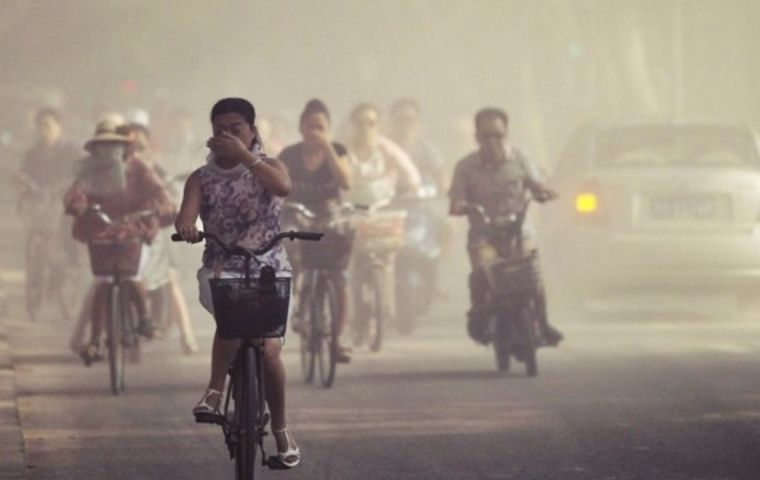MercoPress. South Atlantic News Agency
More than 90% of the world’s children breathe toxic air every day
 A new WHO report on Air pollution and child health examines the heavy toll of both ambient and household air pollution on the health of the world’s children
A new WHO report on Air pollution and child health examines the heavy toll of both ambient and household air pollution on the health of the world’s children  “Polluted air is poisoning millions of children and ruining their lives,” says Dr Tedros Adhanom Ghebreyesus, WHO Director-General.
“Polluted air is poisoning millions of children and ruining their lives,” says Dr Tedros Adhanom Ghebreyesus, WHO Director-General. Every day around 93% of the world’s children under the age of 15 years (1.8 billion children) breathe air that is so polluted it puts their health and development at serious risk. Tragically, many of them die: WHO estimates that in 2016, 600,000 children died from acute lower respiratory infections caused by polluted air.
A new WHO report on Air pollution and child health: Prescribing clean air examines the heavy toll of both ambient (outside) and household air pollution on the health of the world’s children, particularly in low- and middle-income countries. The report is being launched on the eve of WHO’s first ever Global Conference on Air Pollution and Health.
It reveals that when pregnant women are exposed to polluted air, they are more likely to give birth prematurely, and have small, low birth-weight children. Air pollution also impacts neurodevelopment and cognitive ability and can trigger asthma, and childhood cancer. Children who have been exposed to high levels of air pollution may be at greater risk for chronic diseases such as cardiovascular disease later in life.
“Polluted air is poisoning millions of children and ruining their lives,” says Dr Tedros Adhanom Ghebreyesus, WHO Director-General. “This is inexcusable. Every child should be able to breathe clean air so they can grow and fulfil their full potential.”
One reason why children are particularly vulnerable to the effects of air pollution is that they breathe more rapidly than adults and so absorb more pollutants.
They also live closer to the ground, where some pollutants reach peak concentrations – at a time when their brains and bodies are still developing.
Newborns and young children are also more susceptible to household air pollution in homes that regularly use polluting fuels and technologies for cooking, heating and lighting.
“Air Pollution is stunting our children’s brains, affecting their health in more ways than we suspected. But there are many straight-forward ways to reduce emissions of dangerous pollutants ,” says Dr Maria Neira, Director, Department of Public Health, Environmental and Social Determinants of Health at WHO.
“WHO is supporting implementation of health-wise policy measures like accelerating the switch to clean cooking and heating fuels and technologies, promoting the use of cleaner transport, energy-efficient housing and urban planning. We are preparing the ground for low emission power generation, cleaner, safer industrial technologies and better municipal waste management, ” she added.




Top Comments
Disclaimer & comment rulesCommenting for this story is now closed.
If you have a Facebook account, become a fan and comment on our Facebook Page!